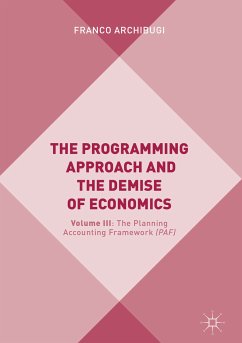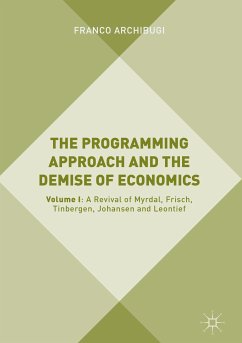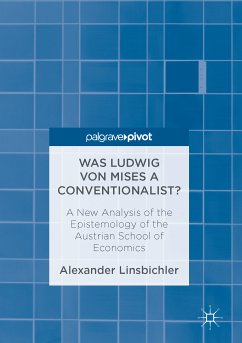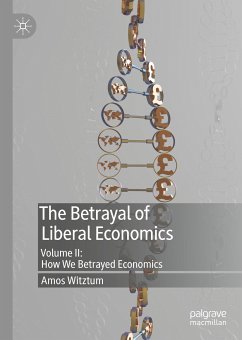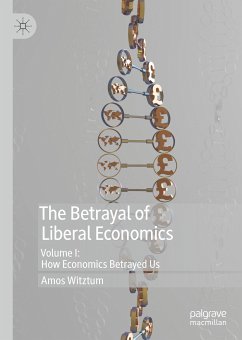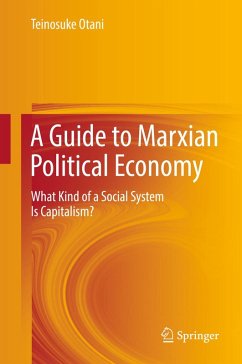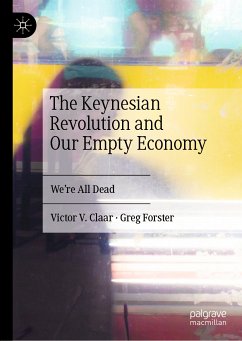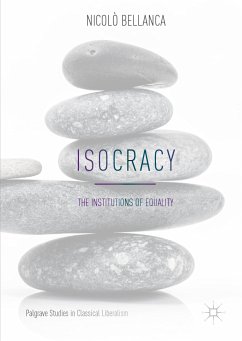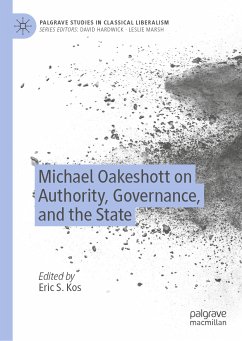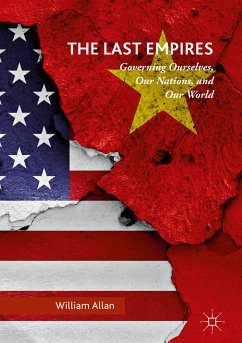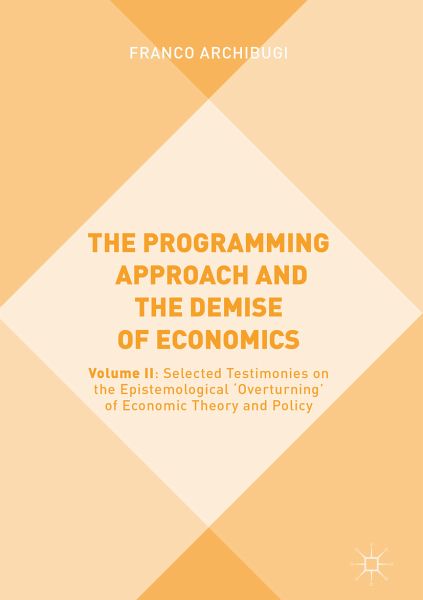
The Programming Approach and the Demise of Economics (eBook, PDF)
Volume II: Selected Testimonies on the Epistemological 'Overturning' of Economic Theory and Policy

PAYBACK Punkte
36 °P sammeln!
This trilogy deals with an epistemology of economics, arguing for a radical overturning of conventional analysis and providing an alternative to political economy and social sciences, based not on positivism, but on a normative and programming paradigm.Volume II builds on the work presented in Volume I to explore oppositions to the traditional and conventional teaching of economics, and presents testimonies that are favourable to a trend towards a programming approach, thereby giving substance to the epistemological 'overturning' of conventional analysis. Such oppositions studied include the w...
This trilogy deals with an epistemology of economics, arguing for a radical overturning of conventional analysis and providing an alternative to political economy and social sciences, based not on positivism, but on a normative and programming paradigm.
Volume II builds on the work presented in Volume I to explore oppositions to the traditional and conventional teaching of economics, and presents testimonies that are favourable to a trend towards a programming approach, thereby giving substance to the epistemological 'overturning' of conventional analysis. Such oppositions studied include the work of Ludvig von Mises and his theory of praxeology; Ian Tinbergen and Wassily Leontif's preference for 'planning' over 'forecasting science'; Bruno de Finetti and Daniel Bell's support for the base of 'utopia' in economics; the trend from the 'theory of planning' towards the 'methodology of planning, by Andreas Faludi; neoclassic curiosity about the 'multi-purposes approach' and 'non-economic commodities' as investigated by Walter Isard, as well as theories expressed by Herbert Simon, Robert Lucas, George Soros and Mark Blaug.
Volume III takes studies further and presents a concrete and practical example of how to build a Planning Accounting Framework (PAF), as associated with Frisch's 'plan-frame' (explored in Volume II), to demonstrate the extent to which decisions and negotiations can be routed in the social sciences.
Volume II builds on the work presented in Volume I to explore oppositions to the traditional and conventional teaching of economics, and presents testimonies that are favourable to a trend towards a programming approach, thereby giving substance to the epistemological 'overturning' of conventional analysis. Such oppositions studied include the work of Ludvig von Mises and his theory of praxeology; Ian Tinbergen and Wassily Leontif's preference for 'planning' over 'forecasting science'; Bruno de Finetti and Daniel Bell's support for the base of 'utopia' in economics; the trend from the 'theory of planning' towards the 'methodology of planning, by Andreas Faludi; neoclassic curiosity about the 'multi-purposes approach' and 'non-economic commodities' as investigated by Walter Isard, as well as theories expressed by Herbert Simon, Robert Lucas, George Soros and Mark Blaug.
Volume III takes studies further and presents a concrete and practical example of how to build a Planning Accounting Framework (PAF), as associated with Frisch's 'plan-frame' (explored in Volume II), to demonstrate the extent to which decisions and negotiations can be routed in the social sciences.
Dieser Download kann aus rechtlichen Gründen nur mit Rechnungsadresse in A, B, BG, CY, CZ, D, DK, EW, E, FIN, F, GR, HR, H, IRL, I, LT, L, LR, M, NL, PL, P, R, S, SLO, SK ausgeliefert werden.



